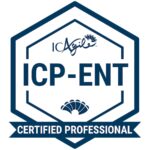Laura Re Turner explores the crucial role of coaching in facilitating behavioral change and achieving organisational agility.
By empowering individuals and teams to adopt agile behaviors, organizations can reap the rewards of increased flexibility, responsiveness, and innovation.
In Becoming Agile: Coaching Behavioural Change for Business Results, Laura Re Turner delves into the first lens of systemic team coaching, which focuses on the individual mindset. She emphasises the importance of understanding and addressing the individual’s beliefs, attitudes, and values as they relate to agility.
Self-awareness
Coach self-awareness is the foundation of our ability to foster an agile mindset in others. Individuals need to recognise their own assumptions, biases, and limiting beliefs that may hinder their ability to embrace agility. She encourages coaches to work through reflective exercises and self-assessment tools to uncover these underlying factors, then use their reflective skills to support their clients’ development.
Psychological safety
She also explores the concept of psychological safety, which Turner defines as ‘a shared belief that the team is safe for interpersonal risk-taking.’ She explains that psychological safety is essential for fostering an agile environment where individuals feel comfortable expressing ideas, asking questions, and admitting mistakes without fear of judgment or repercussions.
Principles for effective coaching
Turner outlines four key principles for effective coaching:
- Focus on the coachee’s needs and priorities. Coaching is not about imposing the coach’s agenda onto the coachee. Instead, it’s about understanding the coachee’s specific challenges and aspirations, and tailoring the coaching approach accordingly.
- Help the coachee develop self-awareness. Agile behaviors stem from a deep understanding of oneself, one’s strengths, weaknesses, and motivations. Coaching can help coachees uncover their core values, identify their emotional triggers, and recognize their habitual patterns.
- Promote active experimentation. Agility thrives in an environment of continuous learning and improvement. Coaching can encourage coachees to step outside their comfort zones, experiment with new approaches, and embrace feedback as a source of growth.
- Create a safe and supportive environment. Trust and psychological safety are essential for effective coaching. Coaches should foster a sense of mutual respect, openness, and confidentiality, allowing coachees to feel comfortable exploring their vulnerabilities and learning from their mistakes.
Some practical strategies for coaches to promote psychological safety including establishing clear expectations, encouraging open communication, and valuing diversity of thought. It’s important for coaches and leaders to model these behaviors themselves to set a positive example for the team.
By focusing on the individual mindset, coaches can lay the groundwork for a team that is adaptable, collaborative, and resilient in the face of change.
Becoming agile: coaching behavioural change for business results
Emotional intelligence
In addition to self-awareness and psychological safety, Turner discusses the role of emotional intelligence in developing an agile mindset. Emotional intelligence refers to the ability to understand, manage, and express emotions effectively. Turner explains that emotionally intelligent individuals are better equipped to handle the challenges and uncertainties inherent in agile environments.
She encourages coaches to help individuals develop their emotional intelligence through training, coaching, and feedback. By focusing on the individual mindset, coaches can lay the groundwork for a team that is adaptable, collaborative, and resilient in the face of change.
Take the next step in your professional development.
It’s time to take your skills to the next level with the ICAgile Certified Professional (ICP-ENT) in Enterprise Agile Coaching.

Join our next Enterprise Agile Coaching course online, with flexible times for different time zones. Learn with others in a collaborative environment.
Ready to get started? Contact us. We’ll respond within one business day.

